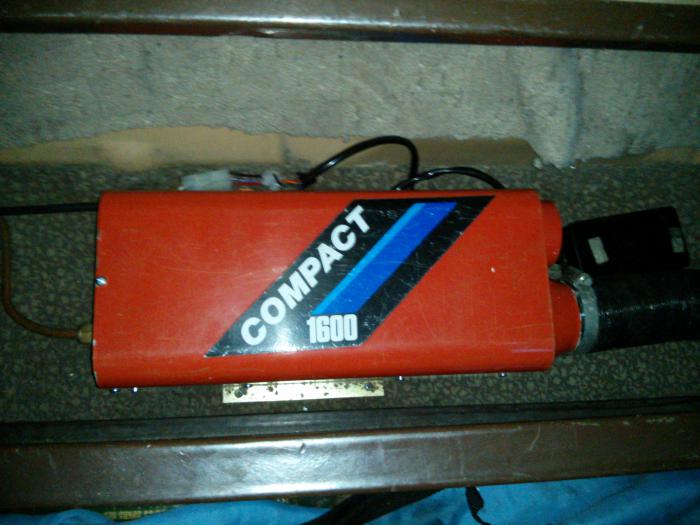Heating a campervan for winter camping (and day trips).

Rocky has sat parked up near our house pretty neglected since the summer, but now my thoughts are turning to winter camping and day trips. Last winter we did a few overnighters, using a combination of an electric fan heater (noisy, but effective), duvets and hot water bottles to keep ourselves cozy. I’ve also been told that an electric oil-filled radiator is a good solution for heating a campervan, as it is safe and silent, so can be left on overnight, unlike the fan heater.
Of course electric heaters require mains hook-up, and this isn’t always available, so many people have blown-air heaters installed – either an eberspacher, which runs on diesel, or a propex which runs on gas. Both these types of heater are expensive bits of kit, but luckily Rocky came fitted with an old propex, which I sent off to be inspected to check if it is safe to use.
The advantage of the propex heater is that it ventilates to the outdoors – ours is fitted under the rear seat with two holes through the floor attached to a couple of lengths of pipe under the van to provide air intake and exhaust for the part of the heater where the flame occurs. This makes it quite safe, though we have a carbon monoxide detector in the van anyway just in case. The other safety issue to watch out for is to make sure the heater isn’t buried under anything flammable – i’ve removed everything from under the seat except my jack now.
I’m writing this on a crisp November morning sat in Rocky parked up near our house, testing out the propex heater that I re-fitted last week. When I first tried it, I couldn’t get it to light. I’d read about how butane “freezes” below a certain temperature – the truth is, it doesn’t actually freeze, but the liquid just gets too cold to boil, and therefore it doesn’t produce any gas below about 4 degrees centigrade. I confirmed this by trying to light the cooker, which also didn’t work. The potential solution is to buy a propane cyclinder instead, which would need a different regulator. I’m reluctant to do this as it means buying and carrying more stuff around, that might rarely get used, and I like the fact that the second bottle of butane used for the heating is a backup for the one running the cooker and fridge. The blue camping gaz butane bottles that I use seem to be available virtually everywhere in the UK and on the continent too – less so for propane I think.
The solution today (I just wanted to check it’s all working, safe etc. before we go and try it for real) was to run an extension cable out to the van and gently warm the gas cyclinder with the electric fan heater that we use on electric hook-up. After about five minutes I tried the propex heater and it worked fine. Of course if we have electric hookup available, we’d probably just use the fan heater instead of burning up our gas supplies and running down the leisure battery. I guess one possible solution if we didn’t have electric available is to use a small portable gas heater (which run on a canister of butane/propane mix, which will hopefully still be working) to warm up the gas cylinders – yep, I know what you are thinking, possibly a bit dangerous! The portable gas heaters shouldn’t be used without ventilation and can be a fire hazard. Another (untested) possibility is that maybe you could use a small butane/propane mix stove to boil some water for hot water bottles to warm the gas bottles. I’ve read somewhere that another solution would be to stand the gas bottle in a washing up bowl full of warm water.
So my thoughts turned to insulating the bottles, but I read somewhere that one problem with this is that the bottle actually cools down as it produces gas, so having it insulated while it is being used will possibly lead to it cooling itself back down below operating temperature! In summary it is worth insulating it to stop it getting cold overnight, but then remove the insulation when you start using it. The more I read, the more I think maybe I should just bite the bullet and buy a propane cylinder..
I’ve actually removed the thermostat for the propex heater and wired it into a switch instead. The reason for this is that I couldn’t get it to work with the thermostat – the heater just squealed! The propex engineer I spoke to suggested that this may be due to a faulty relay, and that I could try to run it directly from a 12 volt source by removing the plug and joining the orange and red wires together and attaching to a 12 volt supply. This seems to work fine.
